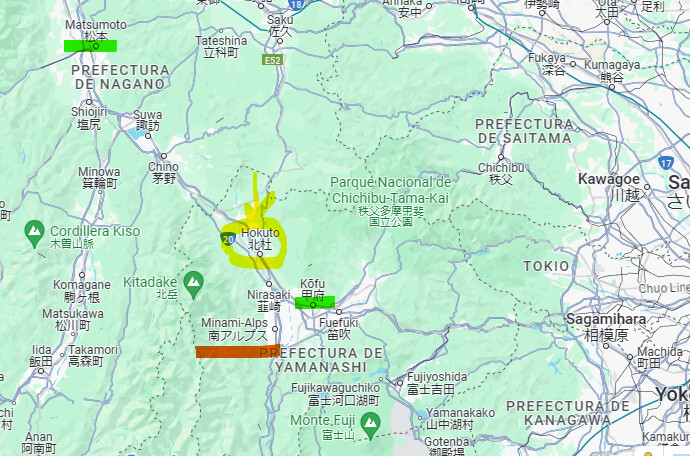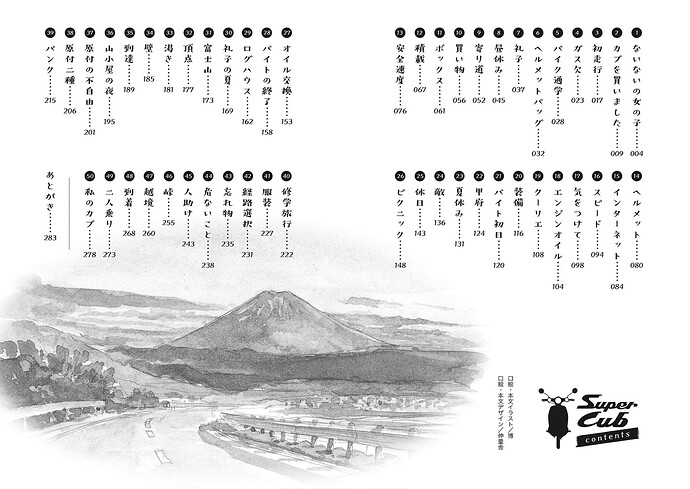I’m still really enjoying it though, and I’m hopeful that the vocab will get a bit easier and I’ll understand more and more with each chapter. I can feel like I’m reading a bit faster already, and am understanding a little bit more.
Indeed! I’m breaking my way through the book and seeing this quite much. It even misguides me when I see a grammar I learned as ~が~, even the basic ones. 
@Asher , I quite like the Challenge Sentences idea, if you find it feasible once in a while.
@Haruさんのこの本の書き方の感情のことを教えてくれてありがとう。とても勉強になりましたんです。
In a previous message, I said I would be interested in a week-by-week schedule, so I tried to make one. Having chapter-based goals, rather than slightly vague page-based goals, would make discussion and reading easier in my opinion. I tried to make each week have around 15 pages of reading, but there is a bit of fluctuation.
Would anyone be against following this schedule? I can easily make changes if needed. Please let me know if you spot any errors.
Your page numbers may be different depending on the version. Chapters 1-2, means to read both chapters 1 and 2, not to stop at the start of chapter 2.
| Week | Start and End Dates | Chapter(s) | Page Count |
|---|---|---|---|
| Week 1 | 4/1/2024 - 4/7/2024 | 1-2 | 13 |
| Week 2 | 4/8/2024 - 4/14/2024 | 3-5 | 15 |
| Week 3 | 4/15/2024 - 4/21/2024 | 6-7 | 13 |
| Week 4 | 4/22/2024 - 4/28/2024 | 8-10 | 16 |
| Week 5 | 4/29/2024 - 5/5/2024 | 11-12 | 15 |
| Week 6 | 5/6/2024 - 5/12/2024 | 13-15 | 18 |
| Week 7 | 5/13/2024 - 5/19/2024 | 16-18 | 14 |
| Week 8 | 5/20/2023 - 5/26/2024 | 19-21 | 16 |
| Week 9 | 5/27/2024 - 6/2/2024 | 22-23 | 12 |
| Week 10 | 6/3/2024 - 6/9/2024 | 24-26 | 17 |
| Week 11 | 6/10/2024 - 6/16/2024 | 27-29 | 16 |
| Week 12 | 6/17/2024 - 6/23/2024 | 30-33 | 16 |
| Week 13 | 6/24/2024 - 6/30/2024 | 34-36 | 16 |
| Week 14 | 7/1/2024 - 7/7/2024 | 37-38 | 14 |
| Week 15 | 7/8/2024 - 7/14/2024 | 39-41 | 16 |
| Week 16 | 7/15/2024 - 7/21/2024 | 42-44 | 12 |
| Week 17 | 7/22/2024 - 7/28/2024 | 45 | 12 |
| Week 18 | 7/29/2024 - 8/4/2024 | 46-47 | 13 |
| Week 19 | 8/5/2024 - 8/11/2024 | 48-50 | 15 |
Wow! Thanks for this! Looks good to me and still sticks to ~3 pages a (week)day which is nice!
In the last sentence of page 16,
Questions
-
when 小熊 leaves the bycicle parking and starts pedaling in the opposite direction to her downhill apartment near the station towards the uphill villas and golf course area, what is the use of the と particles (…下り坂とは逆方向…, …上り坂へと自転車…) for?
-
what is the difference between 方面 and 方向 in this sentence? Are they interchangeable?
No problem. I just want to get everyone on the same page (pun intended).
I am interpreting the purpose of と to be acting as a quotation, along the lines of the “direction that is called~.”
方面 and 方向 seem to have similar meanings, but 方向 seems to be more of a direct direction/path, while 方面 is a direction leading to an area.
Right, とは is short for というのは.
Now that I’ve finally finished The Magic Thief I’ll continue working on this. On Tuesday I read chapter one. I pre-gamed by watching the anime, which led me to believe that this wouldn’t be that hard to read and I still think it won’t be in the end. Chapter 1 was definitely humbling though. 
I’ll say that I think these clubs would benefit from a more precise reading schedule that shows what the last line for every week is, along with separate threads for each week. On WK it makes the book clubs so easy to navigate. Especially if you’re coming in after the book club has finished.
Perfect! Thank you so much!
Yes, I agree, though I would keep a single topic to avoid topic-creep. Does Discourse offer the possibility to produce/mark sections within a topic?
I find the schedule prepared by @krghtj quite good, I also favour chapter-based goals or any goals that take into account the story flow.
I should also mention that the schedule is derived from the Kindle (Digital) copy. If you have the physical copy, the pages could be different. Someone said they had the Bookwalker version, which might be different as well. Please go by the chapters rather than page numbers in case they don’t match.
Also, for clarity, when it says chapters 1-2, that means chapters 1 and 2.
That’s the same as my copy, so the page numbers should line up for you too.
I’m using the Bookwalker app on an iPad, and I’ve noticed that the page numbers can vary significantly—by as much as double—depending on the font size and line spacing. It would be helpful if we went by complete chapters, or if someone could post the chapter number along with the last sentence.
One thing to consider is that while I read I don’t really think in English and often I don’t understand in English what I’m reading and I just let it go. I just let the words wash over me so to speak. Hyper-analyzing the language while useful at some points is not always useful in this exercise.
I encourage the readers of this club to just read and not lookup every word. If you don’t know the reading of a kanji or even the kanji itself just keep going. Let the story penetrate your nonlinguistic side.
Just thought I’d recommend a youtube channel that is fitting for this novel, if you also want to get some related listening in: https://youtu.be/GVhenSJV-jc?si=J0KNMBBgj5ky9PtB
Hi!
Following your advice, I’m reading on (plodding on  ), letting the story unfold and sink in while getting used to the author’s style. The use of long sentences ending in a proper noun feels sometimes poetic, other times like the setting of a scene in a play. It gets easier, though.
), letting the story unfold and sink in while getting used to the author’s style. The use of long sentences ending in a proper noun feels sometimes poetic, other times like the setting of a scene in a play. It gets easier, though.
Whenever the story happens in an actual place, I like reading it whilst looking up the places mentioned in a map. Here you can find where 北杜 is, along with some other places mentioned up to now (甲府, 松本 (in 長野), 南アルプス).

Did another 3 pages today, which puts me into chapter 3 now, which is behind a few people here, but just after the schedule krghtj kindly posted. <3
Answer
I agree with krghtj’s answer about the nuance between the two, but I also wanted to highlight that the full word for the latter part is 逆方向 which means “the opposite direction” :3
So it might be that they were just going for an antonym, and that antonym happens to use a different word for direction.

